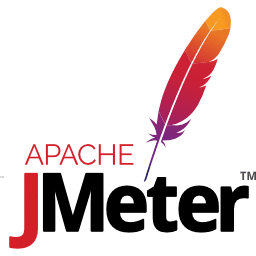Proxy Servers for JMeter

Proxy servers for use in JMeter. Unlimited traffic. Supported protocols: HTTP, HTTPS, SOCKS 4, SOCKS 5, UDP. Rotating proxies with pay-per-request. Reliable and stable connection with 99.9% uptime. Fast speed. Technical support 24/7.
Price: 59
Price Currency: USD
Operating System: Windows, macOS, iOS, Android, Linux, Ubuntu
Application Category: UtilitiesApplication
4.8
What is JMeter?
Apache JMeter is an open-source software application developed by the Apache Software Foundation. It is a 100% Java-based application designed to load test functional behavior and measure performance of applications. Initially developed to test web applications, JMeter has since expanded its capabilities to test various protocols, including HTTP, HTTPS, JDBC, FTP, and more.
| Supported Protocols | Description |
|---|---|
| HTTP/HTTPS | Web protocols for testing web applications and RESTful services |
| FTP | File Transfer Protocol for uploading and downloading files |
| JDBC | Java Database Connectivity for database testing |
| JMS | Java Messaging Service for message-oriented middleware testing |
What is JMeter Used for and How Does it Work?
JMeter is predominantly used for performance testing, which encompasses stress testing, load testing, and functional testing. It allows users to simulate multiple users on web servers, databases, FTP servers, and other types of servers to test their strength and analyze overall performance under different load types.
How JMeter Works:
- Test Plan Creation: The user creates a test plan that specifies what types of requests are to be made to the server.
- Thread Configuration: Users set up a thread group to simulate multiple users that send requests to a target server.
- Sampler Configuration: Defines what type of requests will be sent to the server.
- Execution & Monitoring: The test is executed, and the performance data is collected.
- Analysis: Results are analyzed through various graphical representations like charts, graphs, and tables.
Why Do You Need a Proxy for JMeter?
Using a proxy server in conjunction with JMeter offers an extra layer of versatility and precision. Here are some reasons why a proxy is useful:
- Data Gathering: Collect additional data for in-depth analysis.
- Network Simulation: Simulate different network conditions for more robust testing.
- Geo-IP Testing: Simulate requests coming from different geographic locations.
- Load Balancing: Distribute requests evenly across multiple servers for balanced testing.
- Security: Protect your internal network during the testing phase.
Advantages of Using a Proxy with JMeter
Using a premium proxy service like OneProxy provides a range of benefits for JMeter users:
- Anonymity: Mask your IP to remain anonymous during testing.
- High Availability: Ensures uptime and reliability during long testing cycles.
- High Speed: Optimal speed for avoiding bottlenecks during performance testing.
- Geo-Targeting: Provides IP addresses from various locations for location-based testing.
- SSL Encryption: Advanced security features for encrypted communication.
- Concurrent Threads: Supports multiple concurrent threads for complex scenarios.
What are the Сons of Using Free Proxies for JMeter
Free proxies come with several disadvantages when used with JMeter:
- Limited Bandwidth: Could result in skewed performance results.
- Unreliable Uptime: The server may go down mid-test, wasting time and resources.
- Security Risks: Expose you to malware and unauthorized data access.
- No Customer Support: Lack of technical assistance in case of issues.
- Inadequate Anonymity: Weak masking of your IP addresses, risking exposure.
What Are the Best Proxies for JMeter?
For tasks requiring high reliability, speed, and security, it’s crucial to opt for premium proxy services like those provided by OneProxy. Here are some features to look for:
- Data Center Proxies: These are ideal for JMeter tasks for their speed and reliability.
- High Concurrent Threads: For simulating a large number of users.
- SSL Encryption: For secure data transmission.
How to Configure a Proxy Server for JMeter?
Configuring a proxy for JMeter is a straightforward process, particularly when using a reputable service like OneProxy.
- Download JMeter: If you haven’t installed JMeter, download and install it.
- Open JMeter: Launch the application and create a new test plan.
- Add Thread Group: Go to
Test Plan -> Add -> Threads (Users) -> Thread Group. - Add HTTP Request: Go to
Thread Group -> Add -> Sampler -> HTTP Request. - Proxy Settings: In the HTTP Request, find the
Advancedtab and enter the proxy server details (Server Name or IP, Port). - Run the Test: After configuration, run your test as you normally would.
By leveraging the advanced capabilities of a proxy service, you can significantly extend the versatility and depth of your JMeter testing regimen.













